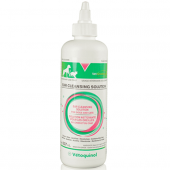If no one can watch after your pet while going away on vacation or handling major home repairs, a dog kennel can provide them with a safe and stimulating environment. Here are a few things to look for when searching for the right establishment for your furry friend.
1. Visit potential dog kennels in person.
Call or email in advance to plan a tour so that the staff may welcome you at the most appropriate time based on the daily schedule. This will give you a chance to get a feel for the environment:
- Overall, the facilities should look and smell clean, without an overwhelming chemical smell.
- Inside, there should be plenty of windows and doors or a proper ventilation system.
- There should be adequate fencing outside (at least 6 ft tall) and a double door entry or two sets of gates; no dog should be able to slip away through a single opening.
2. Ask about vaccination, spay/neuter and behaviour requirements.
Illnesses may spread quickly when animals are kept in close contact, so make sure the establishment demands that dog owners provide proof of vaccination. Check if your dog is required to be of minimum age or be spayed or neutered before attending. Finally, ask if there are any specific standards regarding behaviour and training. Must your dog be able to respond to basic commands?
3. Check the staff-to-dog ratio.
There should never be more than 15 dogs for every staff member as an absolute maximum. A smaller ratio makes your dog more likely to receive greater attention and may be preferable if they’re very active.
4. Are dogs separated into groups? Based on what?
In a small dog daycare setting in a private home, pets may be part of a single group. But in more extensive facilities, dogs may be separated by size (so smaller breeds don’t feel threatened by larger ones), energy level or play style.
5. Make sure the kennel staff uses humane training methods.
Ask, “If my dog does something bad, what do you do?” Stay away from establishments that use physical punishment (including shock collars and water hoses), intimidation and dominance-based methods. Instead, training should rely on positive reinforcement, conditioning and non-physical punishments, such as time-outs or ending a play session early.
6. Ask about staff training.
Beyond requiring a permit to manage large groups of animals, dog kennels are loosely regulated. Ask the establishment what training their staff receives regarding pet first aid, dog behaviour and training, breaking up fights, and if such education comes from a reputable college, a non-profit organization or other institution.
7. If your dog gets injured, what’s the plan?
Staff must know how to administer first aid and have an emergency plan ready for illness or injury requiring medical assistance. Do they have an agreement with a nearby veterinary clinic? Would they take your dog to their usual veterinarian instead? If someone needs to take a dog to the vet, do they still have enough staff to manage the other animals?






